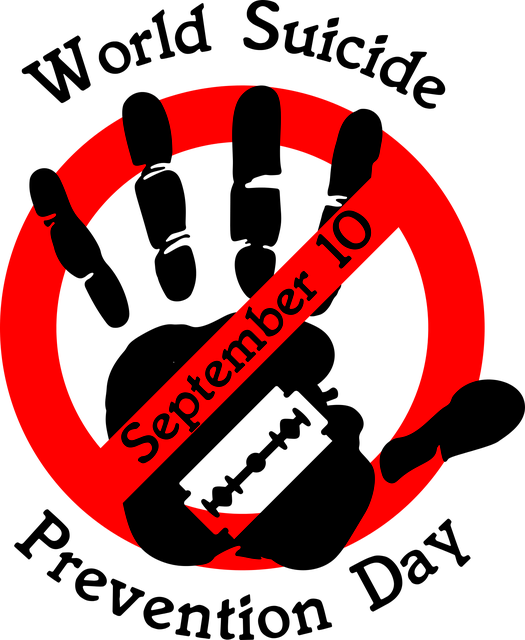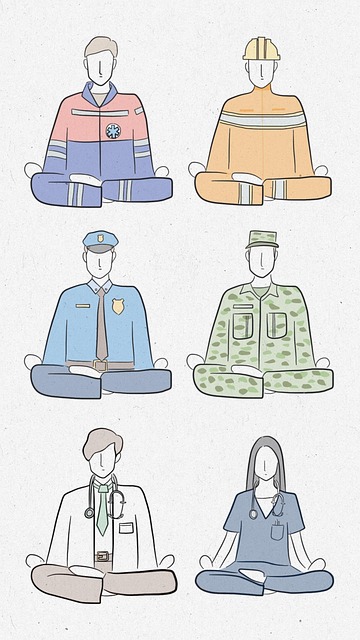Castle Rock Crisis Counseling Therapy prioritizes harm minimization through comprehensive risk assessments and strategic planning. Therapists integrate Social Skills Training, Communication Strategies, and evidence-based practices to build client resilience. Cultural sensitivity training ensures culturally responsive interventions, addressing social and cultural factors in crises. This proactive approach combines immediate support with long-term mental health well-being, fostering safe spaces for emotion processing, trauma work, and coping strategy development. Regular evaluation, adaptation, and continuous learning enable Castle Rock Crisis Counseling Therapy to promptly identify emerging risks and adjust harm minimization strategies, nurturing comprehensive client resilience.
Risk assessment and harm minimization planning are essential components of safe practice, especially in crisis counseling. This article explores these critical aspects through four key sections. We begin by understanding the foundation of risk assessment, followed by identifying effective harm minimization strategies. The role of Castle Rock Crisis Counseling Therapy in risk management is delved into, providing a practical example. Subsequently, we detail how to develop a comprehensive harm minimization plan and emphasize continuous evaluation for adaptation, ensuring client safety at all times.
- Understanding Risk Assessment: A Foundation for Safe Practice
- Identifying Harm Minimization Strategies in Crisis Counseling
- The Role of Castle Rock Crisis Counseling Therapy in Risk Management
- Developing a Comprehensive Harm Minimization Plan
- Continuous Evaluation and Adaptation: Ensuring Client Safety
Understanding Risk Assessment: A Foundation for Safe Practice

Understanding risk assessment is a cornerstone for professionals in Castle Rock Crisis Counseling Therapy. It involves meticulously evaluating potential dangers and their likelihood to cause harm. By examining various factors, therapists can identify risks specific to each client and develop tailored strategies for harm minimization. This proactive approach ensures that interventions are not only effective but also safe.
This process goes beyond simply identifying threats; it encompasses the assessment of resources and coping mechanisms available to clients. By integrating insights from Social Skills Training and Communication Strategies, therapists can empower individuals to navigate challenging situations with enhanced resilience and Anxiety Relief. Such a comprehensive understanding of risk factors enables professionals to foster a secure environment conducive to growth and recovery.
Identifying Harm Minimization Strategies in Crisis Counseling

In Castle Rock Crisis Counseling Therapy, identifying effective harm minimization strategies is paramount. These strategies are not one-size-fits-all but tailored to the unique needs and circumstances of each individual. Counselors play a crucial role in assessing the situation, understanding the client’s background, and incorporating evidence-based practices that foster resilience building. By integrating cultural sensitivity in mental healthcare practice, counselors can provide more personalized care, addressing not just the immediate crisis but also the underlying social and cultural factors contributing to harm.
For instance, a Healthcare Provider Cultural Competency Training might equip counselors with the skills to navigate diverse cultural contexts, ensuring they offer culturally responsive interventions. This approach considers the client’s beliefs, values, and traditions, enhancing the effectiveness of therapy. Through continuous learning and application of these strategies, Castle Rock Crisis Counseling Therapy can significantly contribute to harm minimization, promoting long-term mental health and well-being for all clients.
The Role of Castle Rock Crisis Counseling Therapy in Risk Management

Castle Rock Crisis Counseling Therapy plays a pivotal role in risk management by providing immediate and specialized support during crises. This therapy offers a safe space for individuals to process intense emotions, work through trauma, and develop coping strategies. By facilitating self-awareness exercises and promoting open dialogue, Castle Rock Crisis Counseling helps clients identify triggers and vulnerabilities, empowering them to proactively manage risks.
Incorporating stress management techniques and fostering the development of a self-care routine for better mental health are core aspects of their approach. This proactive mindset equips individuals with tools to navigate challenging situations, ensuring they can maintain resilience and emotional well-being. Through these comprehensive services, Castle Rock Crisis Counseling Therapy not only minimizes harm but also fosters long-term mental wellness.
Developing a Comprehensive Harm Minimization Plan

Developing a comprehensive harm minimization plan is a multifaceted process that requires thorough assessment and strategic implementation. At Castle Rock Crisis Counseling Therapy, we understand the importance of addressing potential risks proactively. This involves identifying high-risk individuals or situations, analyzing the severity and likelihood of adverse outcomes, and devising tailored interventions. Our crisis intervention guidance emphasizes a holistic approach, integrating risk management planning with trauma support services to create safe environments for all clients.
Through collaborative efforts between mental health professionals, this plan ensures that appropriate resources and strategies are in place to mitigate risks effectively. By following established protocols, such as those outlined in the Risk Management Planning for Mental Health Professionals guidelines, we can provide consistent and compassionate care while minimizing potential harm.
Continuous Evaluation and Adaptation: Ensuring Client Safety

In the realm of Castle Rock Crisis Counseling Therapy, continuous evaluation and adaptation are paramount to ensuring client safety. This dynamic process involves regular review of risk assessment data, client feedback, and changing circumstances. By staying agile, healthcare providers can promptly identify emerging risks and adjust harm minimization plans accordingly. Such adaptability is crucial for fostering a resilient environment where clients not only receive immediate support but also develop coping skills that endure beyond therapy sessions.
Cultural competency training plays a significant role in this continuous evaluation process. It equips healthcare providers with the knowledge and sensitivity to understand diverse client backgrounds, experiences, and expressions of distress. Integrating cultural competency into risk assessment allows for more nuanced interpretations, thereby enhancing the effectiveness of resilience-building interventions. Through regular updates and practice, Castle Rock Crisis Counseling Therapy remains a beacon of safety, empowering clients to navigate challenges with newfound coping skills and enhanced well-being.
Risk assessment and harm minimization planning are essential components of safe practice, particularly in crisis counseling. By understanding risk assessment and implementing strategies like those employed by Castle Rock Crisis Counseling Therapy, professionals can effectively manage and mitigate potential harms. A comprehensive harm minimization plan, coupled with continuous evaluation and adaptation, ensures client safety and fosters positive outcomes. This structured approach allows for proactive navigation through crises, leaving a lasting impact on the lives of those seeking support.











